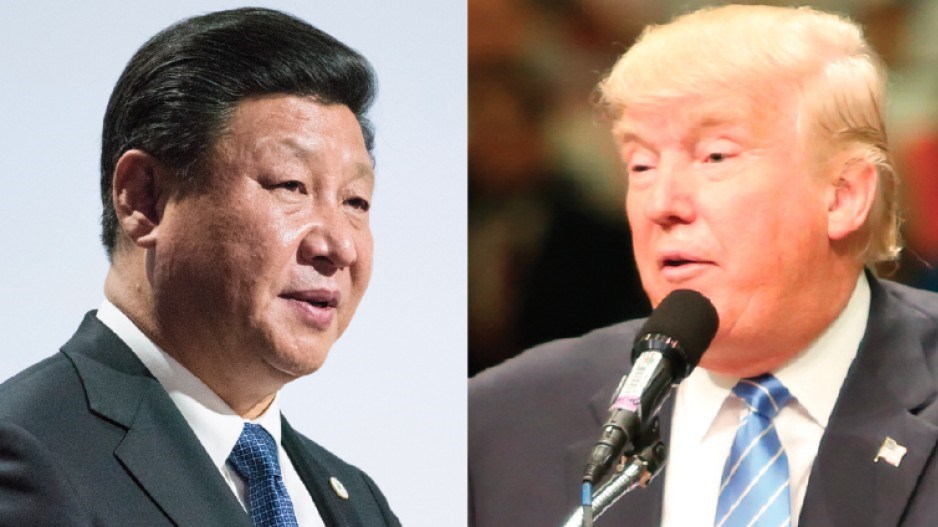They may sound as though they live at opposite ends of the economics spectrum, but Donald Trump and Xi Jinping are brothers under the rhetorical skin.
Trump has made no bones that he intends to be a protectionist president of the United States, ostensibly to “bring back” manufacturing jobs that have migrated abroad. Anti-globalization sound bites ricocheted throughout his campaign speeches, culminating in the strident “America first” theme of his inaugural address.
The litter on the streets of Washington from the inauguration and its followup protest marches had hardly been cleared away before Trump moved on protectionism. An early executive order was to take the U.S. out of the Trans-Pacific Partnership, and within hours of the inauguration Trump dispatched close advisers to talk privately with Prime Minister Justin Trudeau and his cabinet about reworking – or, failing that, junking – the North American Free Trade Agreement.
China, of course, is high on Trump’s list of barriers to making “America great again.” Never mind that the old saw of motivational speakers that the Chinese word for “crisis” is made up of characters meaning “danger” and “opportunity” is total nonsense. President Xi knows a political and diplomatic gift when he sees one. In mid-January he was able to display himself at the annual World Economic Forum in Davos, Switzerland, as a thoughtful internationalist, realist and globalizer, in contrast to the mean-spirited and parochial Trump.
“Whether you like it or not, the global economy is the big ocean that you cannot escape from,” Xi said. “Any attempt to cut off the flow of capital, technologies, products, industries and people between economies, and channel the waters in the ocean back into isolated lakes and creeks, is simply not possible.”
Xi went on to burnish his credentials as a free marketeer by referring to now rather moth-eaten plans to open up the Chinese economy.
The Chinese president has been making similar promises since he came to power nearly five years ago. Not many concrete results are evident. Indeed, the reaction of foreign business people operating in China is that the country has become increasingly less welcoming under Xi’s rule just as he has become more and more intolerant of internal political dissent.
Xi’s Davos performance coincided with the publication by the American Chamber of Commerce in China of its annual Business Climate Survey of its members.
This found that 81% of U.S. companies feel less welcome in China than in the past, up from 77% last year. And 60% have little or no confidence in Beijing’s commitment to open markets.
Most respondents said the Chinese business environment discourages investment. One in four companies either has moved operations out of China in the last three years or plans to do so.
At the same time, many European companies have similar complaints, reporting that they are blocked from acquiring assets in China or investing in sectors Beijing considers strategic to its survival as a one-party regime.
“It often appears that somewhere down the line, political assurances of equal treatment give way to protectionist tendencies,” Germany’s ambassador to Beijing, Michael Clauss, said in a statement issued in mid-January.
Trump and Xi have both promised their citizens they will maintain manufacturing jobs. For Trump, failure to live up to his campaign promises will mean merely being shuffled to the political sidelines. For Xi and the Communist party the implications of failure are far more life-threatening. •
Jonathan Manthorpe ([email protected]) has been an international affairs columnist for 40 years.




